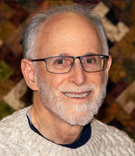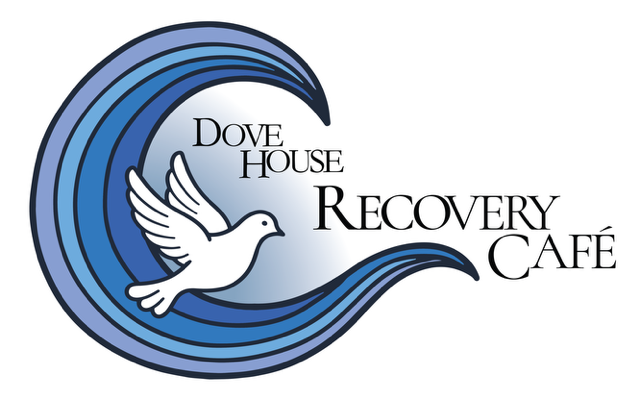|
by Kate Willette
The other things. The other things make up the first half of this story. In the fall of 1964 Robert was in his sophomore year at the University of Michigan in Ann Arbor, struggling to maintain his equilibrium. He had friends and he was doing fine academically, but his inner world was a study in anxiety -- a situation that had been quietly building for years. Unable to tolerate the relentless tension, he quit school and headed home to New Jersey. His parents welcomed him back, with two conditions. Robert would have to get a job, and he’d have to see a psychiatrist. The plan was that he’d sort out whatever was causing the anxiety while a dull, menial job would both keep him busy and remind him of why he wanted an education. He’d be back in school by the next fall, for sure. The 1960s were years when many psychiatrists embraced the idea of drugs as therapy, so it’s not surprising that Robert’s first psychiatrist took that path. Situational depression, caused by isolation from friends and classes? Try an antidepressant. When that leads to anxiety? Try something else. At this point there was no exact diagnosis for what was troubling him.
The cycle had begun: breakdown, hospitalization, medication, reaction, discharge, in a cycle that would last, on and off, for decades. The very first hospital delivered either insulin coma therapy or electric shock treatments to every patient, three times a week. Besides offering sedatives, that was all they did; Robert got the electric shocks. He spent some months there, and then moved on to a different hospital -- one that offered therapy classes in poetry, music, carpentry; he didn’t participate in any of them. He couldn’t. He was in a state of constant, debilitating distress that drove him to run away again and again. In 1969, five years after leaving university, he’d been repeatedly hospitalized while managing to hold a couple of low level jobs for brief periods. His parents weren’t wealthy, though, and the funds for private hospitals were running dry; his next institution was a state hospital in New Jersey called Marlboro. At Marlboro they gave him a three-question exam and prescribed Thorazine, a drug once characterized as a “lobotomy in pill form” because of the way it seemed to turn violent patients into zombies. What wasn’t understood at the time is that in some patients, a side effect of Thorazine is a condition called akathisia. Akathisia is a constant inner sense of acute distress: in his words, “unspeakable anguish.” At Marlboro, he kept asking for more Thorazine in the hope that it would stop the suffering, not realizing yet that it was Thorazine that was causing it. He became too much trouble for the staff to manage.
By 1973, Robert’s old classmates from the University of Michigan had long gone on to grad school or started their careers. Robert had been cycling through institutions and menial work for all that time without relief or reason. He got another low-paying job that year in the library at Seton Hall University, a position he’d be able to hold for four years, mostly because of the woman who was his boss.
The salary, though, wasn’t enough to finance an independent life, and Robert decided to try to get work that paid a little better. It was a mistake. Outside the forgiving atmosphere and low stress of Seton Hall, he couldn’t sustain even a job sending out books for the blind. By this time he was having psychotic episodes of rage, which is how he ended up on yet another massive round of Thorazine.
In 1979 the crisis that had been building for fifteen years arrived.
But something stopped him that afternoon from simply lying down and waiting for it to be over.
He ran and told his father what he’d done, and it was back to the hospital. Around 1980, a new possibility emerged. Robert told his latest psychiatrist that he wanted to try biofeedback. The doctor told him to go ahead, but that if it didn’t help he’d have to go back on medication. Within a few weeks, the experiment was over. It had worked, and for a while, that was the end of the pills. The next few years were filled with holistic health practices, and by 1983 Robert had decided to move to Berkeley, California, which was then the center of a movement led by former mental health patients. He spent the next four years there, but his stability was fragile and easily disrupted. He was, as he describes this time, living on a knife’s edge between healing and breakdown. What finally broke his tenuous hold on stability was mundane: noise. He couldn’t tolerate noise from his neighbors.
Such was the patience and devotion of Robert’s parents that his father came to live with him for a time in Berkeley, to help if he could and show his son what it might look like to handle ordinary issues with neighbors. After a few months he left; the very next day Robert gave up on the idea of having an adult life. That moment marks the center of the story: the decision to live like a child. He went home. For the next ten years, Robert lived in a state of submission to his illness. In the peace and safety of his childhood home, in the presence of his parents, he remained psychosis-free but in a state of low-grade akathisia, constantly uneasy. There was no stress, but also no joy. And then in the fall of 1996 a relative passed away suddenly, and Robert went with his parents to the family gathering that followed.
It wasn’t much. A quiet, private wish to feel human, after a long decade of surrender to the idea that it was never going to happen. Within a few weeks, though, something had changed.
That quiet, private wish was, Robert believes, another instance of a miracle -- another intervention from God that formed an open window where none had been. A couple of years later Robert and his parents made a trip to the Pacific Northwest; his sister and her husband had moved to Port Townsend, Washington. That fall, in September of 1999, Robert moved to Port Townsend, too. He knew he’d need support beyond what his family could provide, so he set up a network that included a naturopath, a reiki practitioner, a nutritional counselor, an acupressurist, and a psychotherapist. His parents sold their home in New Jersey and moved nearby. All was well until 2005, when events combined to destroy the fragile equilibrium. Some were intensely irritating: a persistent smell in his apartment that turned out to be a dead animal; repeated difficulties with plumbing; the all-permeating, choking stench from the paper mill. And one was enormous: Robert’s mother died. His psychosis reared up, threatening to overwhelm him. His father and sister, knowing what would happen if he went into a hospital, arranged for him to have caregivers at home. Through Jefferson Mental Health, he began to work with a nurse practitioner in private practice. Her name was Barbara Menschen. Barbara prescribed an antipsychotic medication that did not cause akathisia. It was a miracle -- after 41 years, a drug that worked. As time passed, Robert was thriving, but he’d noticed a pattern in his moods.
She prescribed Lamictal for the bipolar disorder, to be taken along with the antipsychotic. Today, twelve years on and counting, these two medications continue to neutralize the chemical imbalance that made Robert’s life so impossible for so long. With the exception of lobotomy itself, his personal history with the mental health industry spans the whole scope of twentieth century interventions, delivered by many well-intentioned psychiatrists whose remedies turned out to be as cruel as the illness itself. It wouldn’t be surprising if he were a little bitter about it all. He’s not. In fact, he sees himself a lucky man. And he recognizes that his recovery depends on many things all at once.
Robert treats all approaches to healing with equal respect. Given his experience of miracles, he’s especially sensitive to the ways in which the spiritual dimension gets dismissed as delusion by some medical professionals.
This is where the Recovery Cafe model enters the picture. Robert’s unique experience puts him in a position to understand that a stable, respectful community of support, combined with a variety of approaches to growth, can truly help people. Recovery Cafe Jefferson County, he says,
He imagines a program that invites all sorts of practitioners to donate a little time to people in the Cafe, with the intent of making available the sort of multifaceted support that saved his life and soul. He knows the long, patient, loving care that must exist. And he deeply knows the reward that awaits. This poem, written in 2018, captures it well. I Am Glad
Comments are closed.
|
Categories
All
Archives
June 2024
|


